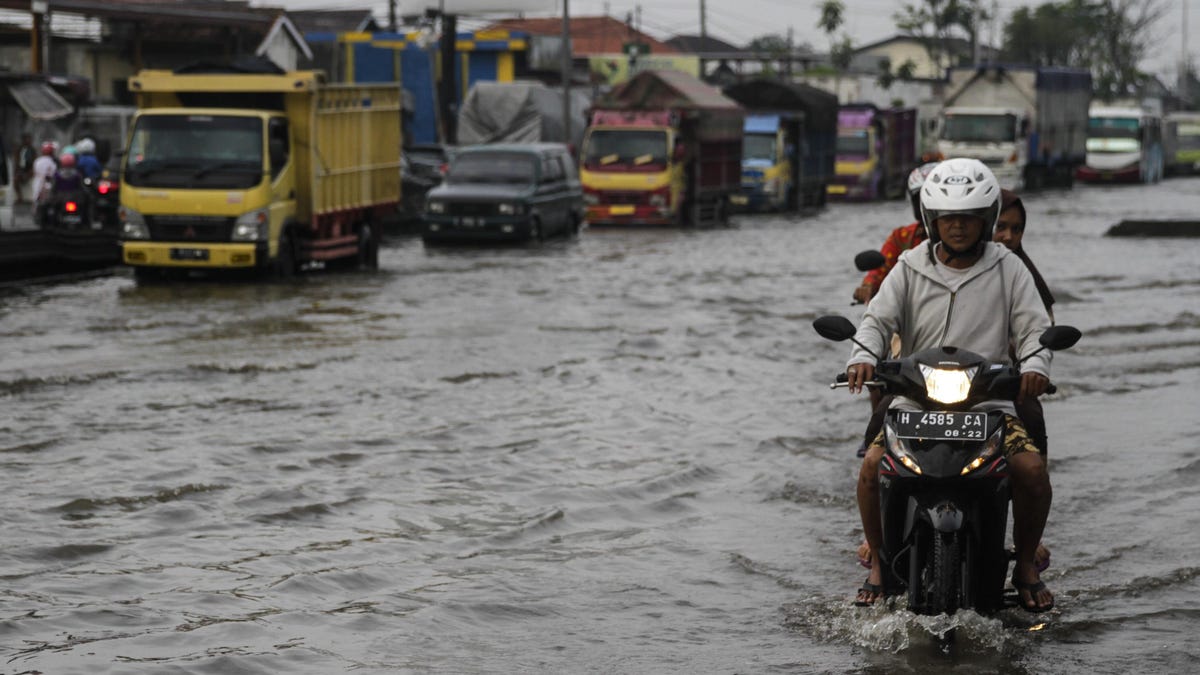Even if we hit climate targets, scientists say sea levels will keep rising
A new study details the long-term impact of short-term emissions.

Cars and motorcycles wade through a flood caused by rising sea level in Central Java, Indonesia, on Feb. 2, 2018.
Even if countries around the world stick to the carbon emission pledges of the current Paris Agreement, sea levels will continue to rise. Emissions generated between 2016 and 2030, when the agreement expires, will account for 20%, or about 20 centimeters, of the total 1 meter sea level rise expected by 2300, according to a new study from Oregon State University.
The study, published Tuesday in the Proceedings of the National Academy of Sciences, was led by researchers at Climate Analytics and the Potsdam Institute for Climate Impact Research. It's the first study that attempts to quantify how much sea levels would rise from the carbon emissions pledged under the Paris agreement, the researchers said.
The Paris Agreement is a United Nations effort to bring countries together to combat climate change. Its goal is to limit global temperature increase to below 2 degrees Celsius (3.6 degrees Fahrenheit), ideally limiting the increase to 1.5 degrees Celsius (2.7 degrees Fahrenheit).
"Even if we were to meet these initial goals of the Paris agreement, the sea level commitment from global warming will be significant," said study co-author Peter Clark in a university release Tuesday. "When we pump more carbon into the atmosphere, the increase in temperature is almost immediate. But sea level rise takes a lot longer to respond to that warming. If you take an ice cube out of the freezer and put it on the sidewalk, it takes some time to melt. The bigger the ice cube, the longer it takes to melt."
The study's estimates didn't account for the potential impact of Antarctic ice sheet melting, one of the main contributors to sea level rise. The researchers said about half of the expected 20-centimeter sea level rise can be attributed to the world's top five polluters: the US, China, India, Russia and the European Union.
Read more: Epic Antarctic ice sheet melt speeding up sea level rise

